Cheval #10
25/6/2017
My poem 'The Walk to Work' has been included in the latest Cheval anthology, published by Parthian. Cheval is the anthology of the Terry Hetherington Award, which has become known as one of the most significant awards for young writers in Wales. Now in its 10th year, the award was set up in memory of the Welsh poet Terry Hetherington, who died in 2007.  © Siôn Tomos Owen © Siôn Tomos Owen It was lovely to read at the launch of the anthology in Swansea last Friday, where I met many of the wonderful people associated with the award. I was also pleased to be reading alongside my fellow Hay Festival Writers at Work Rhian Elizabeth and Philip Jones. Perhaps the highlight of the night, though, was being drawn by the supremely talented Siôn Tomos Owen. Thanks Siôn! You can order a copy of Cheval #10 from Parthian's website: parthianbooks.com Edit: A review of the Cheval launch has since been published by Wales Arts Review. Read that here: walesartsreview.org/cheval-10-spoken-word-night
0 Comments
Popshot #17
5/4/2017
I've been a Popshot reader since their first issue, so I'm really happy to have a poem published in their latest. Thanks to editor Jacob Denno for choosing it, and to the talented Zach Meyer for the accompanying illustration.
Originally focused on poetry alone, Popshot relaunched in 2012 with the strapline 'The Illustrated Magazine of New Writing' to include short stories and flash fiction. Each issue is centred on a theme, with illustrations accompanying each piece of writing. The theme of Issue #17 is 'Future'. Pick up a copy of the Future Issue at popshotpopshot.com The Gull #2
13/2/2017
I have three poems in the latest issue of The Gull magazine. One of the poems is, perhaps confusingly, called 'Gull'. The other two are, less confusingly, called 'Drowned' and 'Victoria Park, 5 a.m.'
You can read the whole issue for free here: thegullmagazine.wordpress.com First published in 2016, The Gull calls itself "the greatest literary and cultural magazine ever to be edited by a seagull." I don't think you'll find many people who would dispute that. However, despite being only two issues old, The Gull has already featured some exceptional writing. Take a look at Gillian Clarke's poem 'Storwm Awst', published in Issue #1, to see what I mean. Thanks to editor Christopher Cornwell for first encouraging me to submit to The Gull and then publishing my poems. bottle rockets #36
18/1/2017
The very first thing I saw this morning was a notification on my phone for a rejection email that had arrived overnight. I've been trying to take a more positive approach to rejection emails recently (after reading this article by Kim Liao), but it was still a boost to come home from work and see this envelope from Windsor, CT on the doormat.
I've got a haiku published in this forthcoming issue of bottle rockets, available to pre-order now from bottlerocketspress.com (though this issue is on a limited print run, so get in quick if you want one). Thanks to bottle rockets editor Stanford M. Forrester for accepting it! The Haiku Calendar 2016
1/2/2016
In April last year, I revealed that one of my haiku would be included in The Haiku Calendar 2016, published by Snapshot Press. Since 1999, Snapshot – an independent publisher specialising in English-language haiku, tanka and other short poetry – have run an annual competition to find 52 haiku to publish in their Haiku Calendar. Of course, by now the 2016 version has been printed and sent out. Edited by John Barlow, each calendar features haiku poets from around the world, and intends to explore and celebrate the relevance of kigo (a word or phrase associated with a particular season) in English-language haiku. As far as I'm aware there are no readily-available photographs of the actual calendar on the internet, so I thought I'd take some and share them with you.
In my experience, there are very few opportunities for haiku poets to see their work in print (most magazines dedicated to form seem to be completely digital, with a few notable exceptions). The 2016 calendar is the 17th published by Snapshot Press, and for that – along with their consistent output of high-quality collections and anthologies (Lynne Rees's Forgiving the Rain is my favourite) – they should be commended and celebrated. Copies of the 2016 calendar are still available, priced £7.99 (UK), €14.00 (Europe) or £12.00/US$20 (Rest of the World). To order one, go here: snapshotpress.co.uk/calendars/the_haiku_calendar/2016.htm The Lonely Crowd is an exciting new magazine that celebrates the short story, and they've just been kind enough to publish one of mine – 'Give a Dog a Bone' – on their website. Here's an extract:
I wanted the sun to come out, to dry up all the rain so I could go out and play on the hillside, instead of being stuck indoors. That side of the hill was always green and welcoming. Familiar. This side is cold and black, burnt by a forest fire that marched its way to the top before the firefighters smothered it. The sun is disappearing behind it now, turning late afternoon into evening. The drizzle has turned heavy. Read the rest of the story here: http://thelonelycrowd.org/2016/01/23/online-fiction-give-a-dog-a-bone Image © Jo Mazelis 2016 Lighthouse #9
8/9/2015
Usually, if I'm writing a blog post about having something published in a magazine, I would open with a sentence along the lines of "a poem of mine was recently featured in...". But, even though my name appears above it on the back cover of the latest issue of Lighthouse, 'Magnetic' isn't my poem – at least not in the traditional sense.
Found poetry is a form where poets take existing text and repurpose or reframe it as a new piece of writing. The existing text might come from a newspaper article, a political speech, a piece of graffiti or even another poem, with the resulting found poem being defined as either 'treated' or 'untreated'. As an art form, there are obvious comparisons with the controversial objets trouvés of the visual arts – and, as you might expect, found poets are sometimes also accused of hiding behind the ready-made. Though I disagree that found poetry is intellectual theft on the same level as the recent Laventille fiasco, it is hard to argue against the fact that it occasionally enters the grey area that exists between appropriation and plagiarism. When I first submitted this poem to Lighthouse for their 'writing with constraints' issue, it came with a disclaimer: Five poems found on my fridge, created by friends and friends of friends using magnetic words. Written in size 10 font just below the title, this was my attempt to give a source (and, I suppose, to distance myself from accusations of stealing), but it was sliced away – along with a small number of other flabby words and phrases – following some welcome suggestions from Lighthouse editors Julia Webb and Anna de Vaul. For me, the joy of this particular form is finding poetry in unlikely places. Elsewhere in this issue of Lighthouse, for example, is a found poem formed from a medieval act of parliament. Like 'Magnetic', this poem – 'An Acte for the Preservation of Grayne, 1566' by Matt Howard – is untreated (as far as I can tell), but it’s also taken from an existing text that was never intended to be a poem. This is where the two poems differ, and where mine enters that aforementioned grey area. 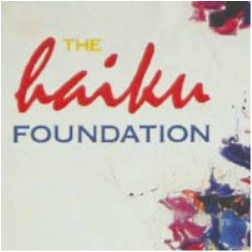
Searching your own name on the internet is a risky move – you never know what might turn up. Maybe you'll unearth that MySpace blog you lovingly curated as an angst-ridden 15-year-old, or discover that the video of you singing karaoke at last year's office Christmas party made its way onto YouTube after all (despite the promises of your co-workers).
Before we continue, I must stress that neither of these things can be found by searching my name. The top results when you search 'Rhys Owain Williams' are pretty much all linked to either this website or to my various social media profiles (hopefully that video of me singing Breakfast at Tiffany's will never see the light of day). So it was a nice surprise when, out of vain curiosity, I put my name into the Twitter search engine and saw this tweet from 4 days ago:
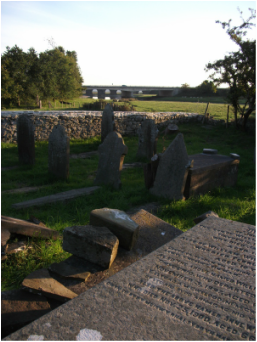 Had some pretty great news late last night – an email came through just as I was going to bed to say that one of my haiku will be included in The Haiku Calendar 2016, published by Snapshot Press. Since 1999, Snapshot – an independent publisher specialising in English-language haiku, tanka and other short poetry – have run an annual competition to find 52 haiku to publish in their Haiku Calendar. Edited by John Barlow, each calender features haiku poets from around the world, and intends to explore and celebrate the relevance of kigo (a word or phrase associated with a particular season) in English-language haiku. My haiku, inspired by the abandoned churchyard at Llandeilo Tal Y Bont (pictured), will appear in the month of September, which by a pleasing coincidence is the month of my birthday. Although there's still 8 months of 2015 to get through, you can pre-order your copy of the 2016 calendar now (with free delivery) for just £7.99 (UK), €14.00 (Europe) or £12.00/US$20 (Rest of the World). Read the full competition results and adjudicator's report here: http://www.snapshotpress.co.uk/contests/thcc/results/thcc2015results.pdf The Lampeter Review #11
10/3/2015
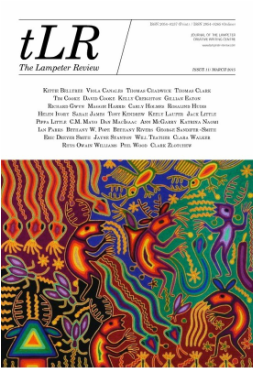 A poem of mine – 'Ghazal' – has been published in Issue 11 of The Lampeter Review, the online journal of the Lampeter Creative Writing Centre (part of the University of Wales, Trinity St David). You can read the entire issue for free by going here: lampeter-review.com/issue-11 A 'ghazal' (roughly pronounced like the English word 'guzzle') is an ancient poetic form with origins in 6th century Arabic verse. It made its way to South Asia by the 12th century, and is now most commonly found in the poetry of the Indian sub-continent. Ghazals are composed of (at least) five thematically and emotionally autonomous couplets, with the link between couplets derived from a strict rhyme and rhythm pattern, rather than a development of subject. However, my poem is a loose, Westernised (or, bastardised) version, and does not follow the strict pattern of the traditional form. Instead, I have focused solely on the poetic style of a traditional ghazal where, as the American poet Len Anderson states, "each couplet should be a poem in itself, like a pearl in a necklace." Elesewhere in this issue of The Lampeter Review, there is a thematic focus on magic realism and the writers of Latin America, which has made for very interesting reading so far. All 10 back issues of the journal, which "promotes the best in new writing from published and unpublished authors", can also be read on The Lampeter Review's website: lampeter-review.com |
Categories
All
Archives
January 2024
|
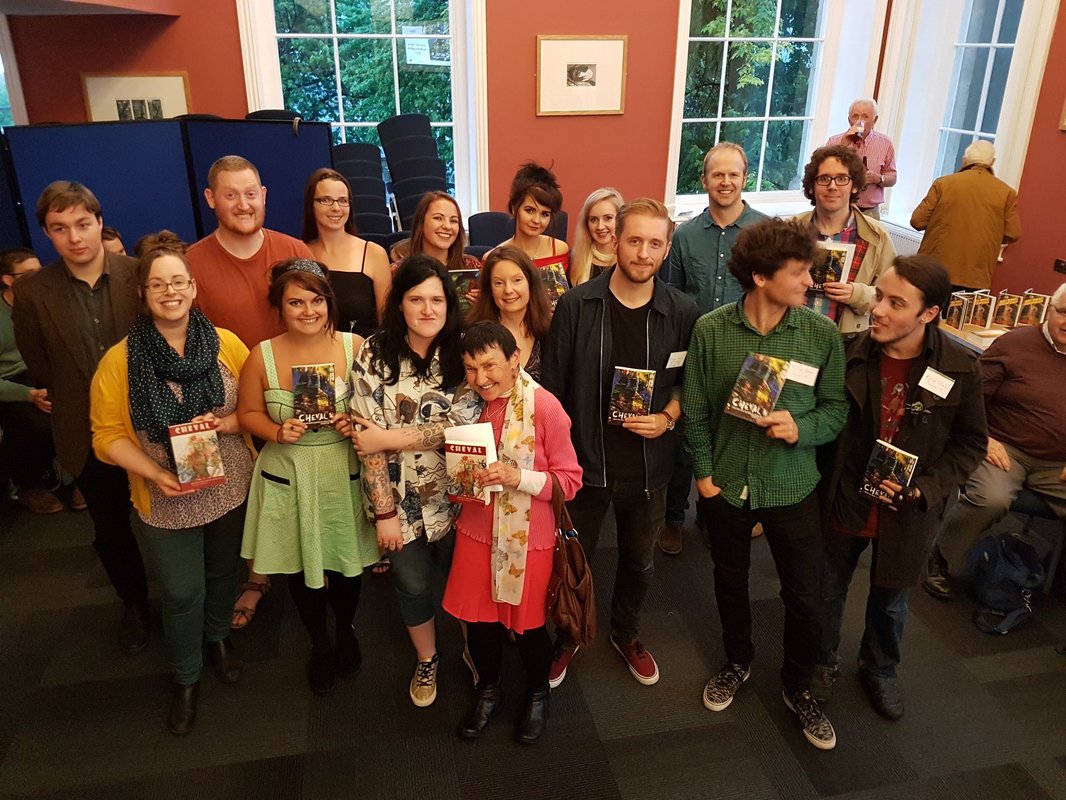
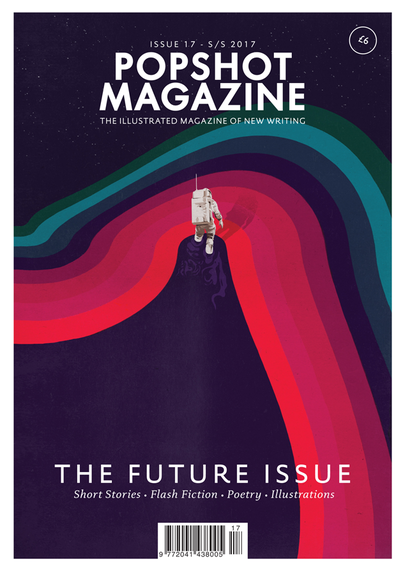

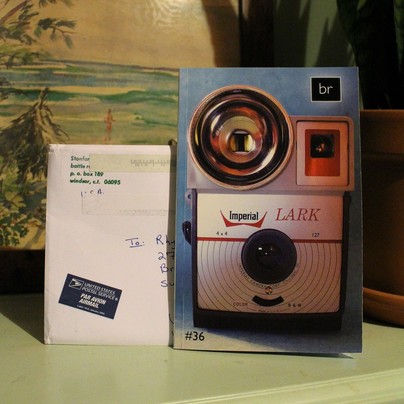
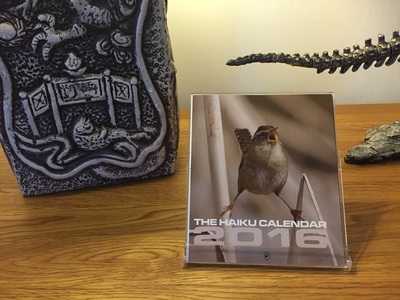
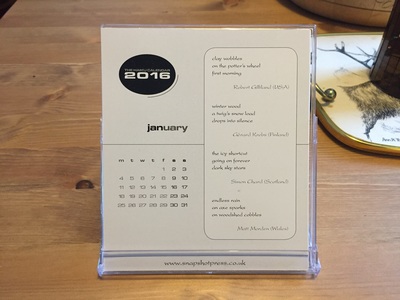
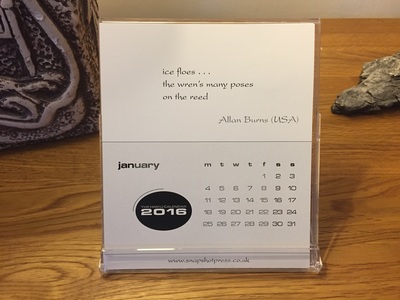
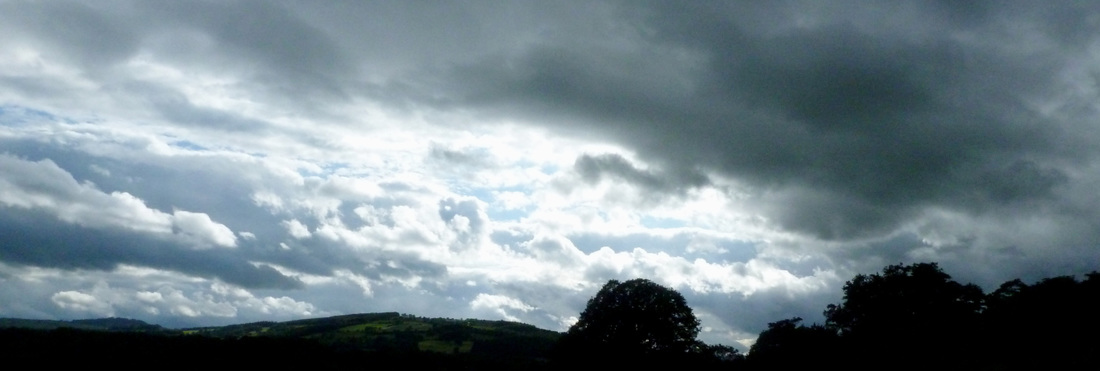
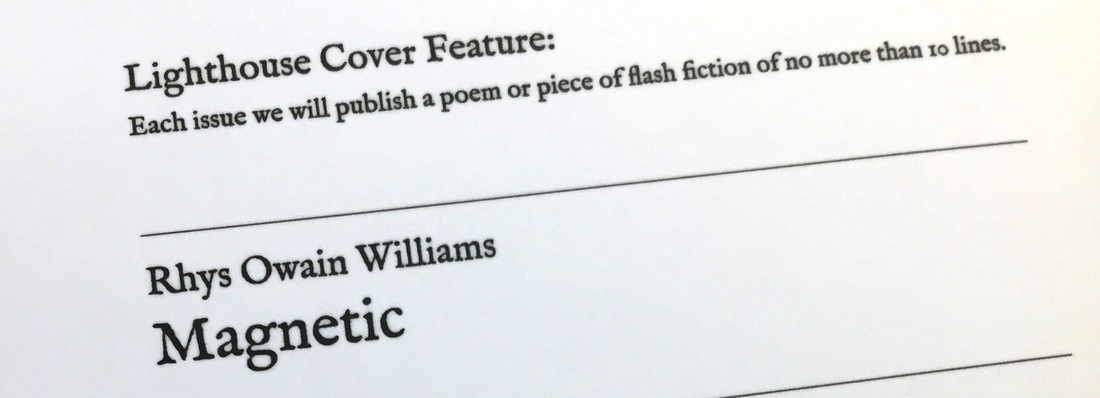
 RSS Feed
RSS Feed
